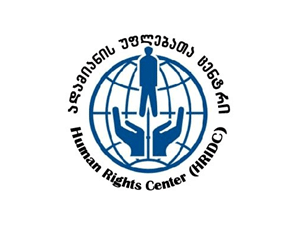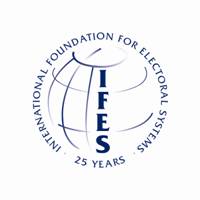
Sandro Gvimradze
What is necessary for good advertisement - much money and good PR-specialist? Very often, number of votes at the elections relies on these two factors. One the one hand there is balance and number of pre-election advertisements (how many minutes were spent on advertisements of each political party) and on the other hand there is quality of advertisements prepared by political parties.
In the frame of Human Rights Center’s media-monitoring, which covered six TV-channels, monitors observed one tendency – majority of political parties were not ready for the pre-election campaign. It is proved by fact that some of them started to seek broadcasting time for their political advertisements very late. It did not happen with the National Movement and Georgian Dream. However, one of four qualified election subjects – Georgian Dream, was last to place its political advertisements on Public Broadcaster – on August 23.
In the first period of parliamentary elections these two political parties were main actors in TV-advertisements. Two of them presented high-quality advertisements. Though there was one problem – due to their election promises, their ads resembled each other very much.
Considering the current situation, we can assume that advertisement campaign was more successful for the National Movement; more precisely:
1. advertisements of the National Movement occupied more broadcasting time than other parties;
2. Anti-advertisements about Georgian Dream were aired by TV-Channels that in fact supported National Movement;
3. National Movement clearly benefited from music clips in advertisement intervals – “Anaklia Is Eager to Welcome You,” “I Love Racha,” “I Love Kakheti”, clips about renovated Svaneti and Akhaltsikhe, etc because they advertised projects implemented by the government.
Status of musical clips aired by Rustavi 2 is still unclear. The TV-Company did not reply to this question of Human Rights Center. On Public Broadcaster, those clips initially had status of social ads then they were removed from the list of social ads and their status remained unclear on GPB too. Those clips contained signs of hidden political advertisement in favor of the government and ruling party and their assumed purpose was to influence decision of voters before elections. This assumption is intensified by the fact that after elections TV-Channels have not aired those clips.
As for other political parties, advertisements of the Labor Party attracted our attention most of all. We saw that the political party focused on number of advertisements rather than on their quality. In fact, political advertisements of the Labor Party were not advertisements but collection of scenes from TV-statements of the political party’s leader Shalva Natelashvili which he had made in the TV-program Debate on GPB, during his meeting with voters, etc. Similar advertisement is financially profitable because it costs cheaper. However, they can hardly compete with the advertisements of the National Movement and Georgian Dream where several cameras worked on the preparation of the clips.
Chief consultant of the PR and Marketing Communications Company “Jepra” Soso Galumashvili said advertisements were not spontaneously prepared, each of them had its audience but there were some gaps too. “It was mistake when Christian Democrat Movement started speaking about agriculture whilst their real voters live in the cities and not in villages. The New Rights also had audience in cities. Finally, those parties could not gain votes which they could have obtained in cities,” said Galumashvili.
He added that CDM’s slogan – “Cheap Tariffs for People” was also disadvantageous. The main reason is that this party had won local self-governmental elections with the same promises but tariffs were not reduced afterwards; just the opposite, tariffs increased.
Soso Galumashvili also said that part of political parties (meaning not only main actors) could not identify their audience that resulted into obscurity of their messages and slogans.
This report is made possible by the support of the American people through the United States Agency for International Development (USAID). The contents are the sole responsibility of Human Rights Center and do not necessarily reflect the views of the International Foundation for Electoral Systems, USAID or the United States Government


This report is made possible by the support of the American people through the United States Agency for International Development (USAID). The contents are the sole responsibility of Human Rights Center and do not necessarily reflect the views of the International Foundation for Electoral Systems, USAID or the United States Government.
News
December 13, 2023
Ethnic minorities outside the peace dialogue
November 6, 2023
‘Peace’ agenda of political parties
Popular
Articles
February 13, 2024




